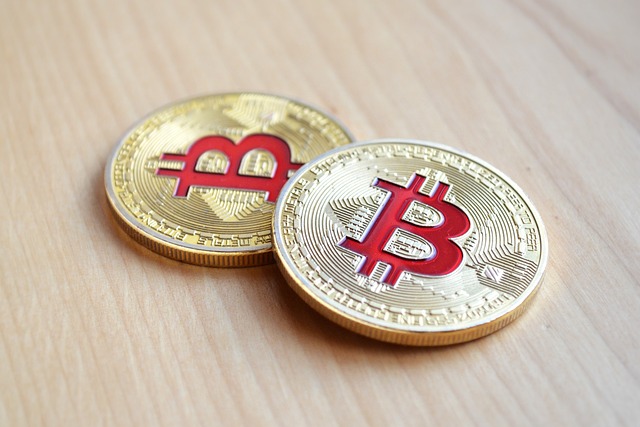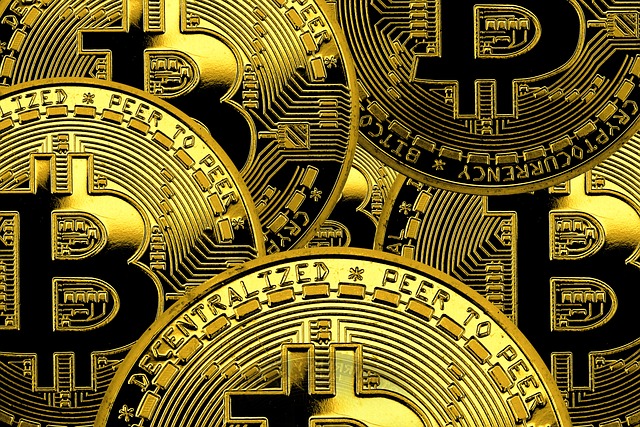From Traditional Banking to DeFi: A Definition Evolution
From Traditional Banking to DeFi: A Definition Evolution

The Rise of Decentralized Finance (DeFi)
The Rise of Decentralized Finance (DeFi) is taking the financial world by storm. It is a revolutionary concept that leverages blockchain and smart contract technology to create transparent and decentralized financial systems. Unlike traditional banking, which relies on centralized institutions to facilitate transactions and manage funds, DeFi allows individuals to access financial services directly, without intermediaries.
One of the key advantages of DeFi is its accessibility. Traditional banking systems often exclude a large portion of the global population, particularly those in developing countries, due to high fees, stringent documentation requirements, and limited access to financial services. DeFi, on the other hand, opens up a world of opportunities for the unbanked, allowing them to engage in a wide range of financial activities such as lending, borrowing, and even investing, all from the comfort of their own smartphones.
The Advantages of Traditional Banking
Traditional banking has long been the cornerstone of our financial system, offering a range of advantages that have stood the test of time. One of the key benefits is the physical presence of brick-and-mortar branches, which allows customers to have face-to-face interactions with bank staff. Whether it’s opening an account, applying for a loan, or seeking financial advice, having a personal touch can instill trust and provide a sense of security. Traditional banks also offer a wide range of services, such as checking and savings accounts, mortgages, credit cards, and investment opportunities. These comprehensive offerings simplify financial management, ensuring that customers can find all their banking needs under one roof.
Moreover, traditional banks have a well-established regulatory framework and are often insured by government-backed programs, providing an extra layer of protection for customers’ deposits. This stability and security have been vital in maintaining public confidence in the banking industry. Additionally, traditional banks have a long history of lending, making them more accessible to borrowers. They have well-defined criteria for loan approvals, which can be beneficial for individuals and businesses with limited credit history or unconventional income sources. This inclusivity allows traditional banks to serve a wide range of customers and contribute to the overall economic growth of communities.
• Face-to-face interactions with bank staff instill trust and provide a sense of security
• Comprehensive offerings simplify financial management
• Well-established regulatory framework and government-backed insurance programs provide extra protection for customers’ deposits
• Long history of lending makes traditional banks more accessible to borrowers
• Inclusivity allows traditional banks to serve a wide range of customers and contribute to economic growth
Understanding the Concept of DeFi
Decentralized Finance, or DeFi, is a term that is gaining momentum in the financial world. It refers to the use of blockchain technology and smart contracts to create new financial systems that operate outside of traditional centralized institutions. In basic terms, it enables individuals to access financial services and products directly, without the need for intermediaries like banks.
Imagine a world where you can borrow money, earn interest, or trade assets without going through a bank. That’s exactly what DeFi aims to achieve. By leveraging blockchain technology, DeFi platforms provide a transparent and open ecosystem that allows users to interact with each other in a peer-to-peer manner. The beauty of DeFi lies in its ability to offer financial services that are accessible to anyone with an internet connection, regardless of their geographical location or socioeconomic status. It’s a revolutionary concept that has the potential to democratize finance and empower individuals in ways we have never seen before.
The Challenges Faced by Traditional Banks
Traditional banks have long been the bedrock of the global financial system. However, they now find themselves grappling with an increasingly complex landscape filled with formidable challenges. One of the main obstacles faced by traditional banks is the rapid advancement of technology. In today’s digital age, customers expect seamless and convenient banking services that can be accessed anytime, anywhere. Traditional banks, burdened by their legacy systems and outdated infrastructure, often struggle to keep up with the speed and efficiency offered by tech-savvy fintech companies.
Another challenge faced by traditional banks is the ever-changing regulatory environment. As governments and regulatory bodies strive to protect consumers and maintain financial stability, banks are constantly bombarded with new rules and regulations. Compliance can be an expensive and time-consuming process, requiring significant financial and human resources. Moreover, the risk of non-compliance can result in hefty fines and reputational damage, making it a constant concern for traditional banks. As regulatory requirements continue to evolve, traditional banks must adapt quickly and effectively to ensure their operations remain compliant and transparent.
In summary, the challenges faced by traditional banks today stem from the need to upgrade their technological infrastructure to meet customer expectations in a digital world, as well as the ongoing struggle to navigate complex and ever-changing regulatory landscapes. To remain relevant and competitive, traditional banks must embrace innovation and find ways to streamline their operations while ensuring compliance with regulatory standards.
Exploring the Potential of DeFi Technology
DeFi (Decentralized Finance) technology has emerged as a disruptive force in the financial industry, offering a range of potential benefits to both individuals and businesses. One of the key advantages of DeFi is its ability to provide financial services without relying on traditional intermediaries such as banks. This decentralized nature enables greater accessibility and inclusivity, allowing anyone with an internet connection to participate in various financial activities.
The potential of DeFi goes beyond just accessibility. By leveraging blockchain technology, DeFi platforms can enable a wide array of financial operations, including lending, borrowing, and trading, to be conducted in a transparent and secure manner. Smart contracts, which are self-executing agreements written on the blockchain, play a pivotal role in automating these operations, removing the need for intermediaries and reducing associated costs. This not only streamlines processes but also mitigates the risk of fraud and manipulation, providing users with a level of trust that is often lacking in traditional financial systems. Additionally, DeFi opens up opportunities for decentralized applications (dApps) to be built on top of DeFi protocols, creating a vibrant ecosystem of innovative and user-centric financial solutions.
The Role of Smart Contracts in DeFi
Smart contracts play a pivotal role in the world of decentralized finance (DeFi).


One of the key advantages of smart contracts is their ability to ensure transparency and immutability. Once a smart contract is deployed on the blockchain, it cannot be altered or tampered with, providing a level of trust and security that is unparalleled. This transparency also allows users to verify the terms of the agreement and the movement of funds, creating a more transparent and auditable financial system. Additionally, smart contracts enable the automation of complex financial operations, reducing the likelihood of human error and enabling faster and more efficient transactions.
The Impact of DeFi on Financial Inclusion
The impact of decentralized finance (DeFi) on financial inclusion cannot be understated. With traditional banking systems often failing to reach individuals in remote areas or those without access to formal financial services, DeFi offers a promising solution. By utilizing blockchain technology and smart contracts, DeFi platforms enable individuals to access financial services and participate in economic activities without the need for intermediaries.
One of the key benefits of DeFi is its ability to democratize financial services. With DeFi, anyone with an internet connection can create an account and access a wide range of financial products and services. This opens up opportunities for individuals who previously had limited access to banking services, such as those living in rural areas or developing countries. By eliminating the need for physical branches and costly infrastructure, DeFi platforms can provide financial services at a fraction of the cost, making them more affordable and accessible to a larger pool of individuals. This not only fosters greater financial inclusion but also empowers individuals to take control of their personal finances and participate in the global economy.
Regulatory Considerations for DeFi Platforms
DeFi platforms have been gaining momentum in recent years, revolutionizing the traditional financial landscape. However, as this innovative technology continues to mature, there is a growing need to address the regulatory considerations surrounding DeFi.
One of the primary concerns is the lack of oversight and governance in the decentralized finance space. Unlike traditional banks that are subject to strict regulations and oversight from central authorities, DeFi platforms operate on a peer-to-peer basis, allowing users to transact and lend without intermediaries. While this decentralization is one of the key advantages of DeFi, it also poses challenges in terms of protecting consumers’ interests and ensuring fair practices. Without proper regulation, there is a risk of fraudulent activities, scams, and market manipulation. As such, striking a balance between fostering innovation and safeguarding user interests will be crucial in shaping the future of DeFi regulation.
Additionally, interjurisdictional concerns arise when it comes to DeFi platforms. Traditional banking institutions must comply with regulations specific to each country in which they operate. In contrast, DeFi platforms operate in a borderless environment, allowing users from anywhere in the world to participate. This global reach presents challenges in terms of determining which jurisdiction’s regulations should be applied. Harmonizing regulations across different countries will be necessary to promote a fair and secure environment for users while avoiding regulatory arbitrage.
The Future of Banking: Integrating Traditional and Decentralized Systems
Traditional banking and decentralized finance (DeFi) have long been viewed as separate entities in the financial world. However, as technology continues to advance, the lines between these two systems are becoming increasingly blurred. The future of banking lies in integrating traditional and decentralized systems, creating a seamless experience for users.
By combining the strengths of both traditional banking and DeFi, we can harness the stability and security of traditional financial institutions, while also benefiting from the innovation and accessibility of decentralized systems. This integration would allow for a more inclusive and efficient financial ecosystem, where individuals have greater control over their assets and transactions. Moreover, it would bridge the gap between the traditional and digital worlds, providing users with a holistic banking experience tailored to their needs. As we move towards the future, it is essential for banks and financial institutions to embrace this integration and adapt their services to meet the demands of a rapidly changing landscape. The transition to a hybrid banking system has the potential to revolutionize the way we interact with money, ultimately leading to a more inclusive and decentralized global economy.
Closing the Gap: Creating a Seamless Transition to DeFi
Traditional banking has long been the foundation of our financial system, providing stability and security to individuals and businesses alike. However, with the rise of decentralized finance (DeFi), a new era of financial possibilities is emerging. While DeFi offers numerous advantages such as increased transparency, accessibility, and efficiency, there is still a gap that needs to be bridged in order to transition seamlessly from traditional banking to this innovative system.
One of the key challenges in closing this gap is the integration of traditional banking systems with DeFi technology. Traditional banks have well-established frameworks and regulatory processes in place, which can make it difficult to adopt the decentralized nature of DeFi.

What is DeFi?
DeFi, short for Decentralized Finance, refers to the use of blockchain technology to recreate traditional financial systems without the need for intermediaries like banks.
What are the advantages of traditional banking?
Traditional banking offers services like physical branches, customer support, and government-backed insurance on deposits. It also provides a familiar and regulated environment for financial transactions.
What are the challenges faced by traditional banks?
Traditional banks face issues like high fees, limited accessibility, slow transaction times, and lack of transparency. They also struggle with outdated systems and difficulty adapting to new technologies.
How does DeFi technology explore potential?
DeFi technology allows for peer-to-peer transactions, global access, fast and low-cost transactions, and increased transparency through public ledgers. It also enables innovative financial products and services.
What is the role of smart contracts in DeFi?
Smart contracts are self-executing contracts with predefined rules written on the blockchain. In DeFi, smart contracts automate processes like lending, borrowing, and trading, eliminating the need for intermediaries.
What impact does DeFi have on financial inclusion?
DeFi has the potential to provide financial services to the unbanked and underbanked population by removing barriers like high fees, credit checks, and geographical limitations. It promotes inclusivity and equal access to financial services.
What regulatory considerations should be taken for DeFi platforms?
DeFi platforms need to navigate regulatory frameworks to ensure legality, security, and customer protection. They should comply with anti-money laundering (AML) and know your customer (KYC) regulations.
How can traditional and decentralized systems be integrated in the future of banking?
The future of banking lies in integrating the best aspects of both traditional and decentralized systems. This can be achieved through partnerships and collaborations, where banks leverage DeFi technology to enhance their services.
How can we create a seamless transition to DeFi?
To create a seamless transition to DeFi, traditional banks can gradually adopt blockchain technology, educate their customers about DeFi, and offer hybrid services that combine the benefits of both traditional banking and DeFi.
Todays Featured Product:
Buy, exchange and grow your crypto securely with a Ledger hardware wallet, combined with the Ledger Live app. It’s never been easier to keep your crypto safe and accessible. Buy direct from Ledger.com and get todays Special Offers Here.




